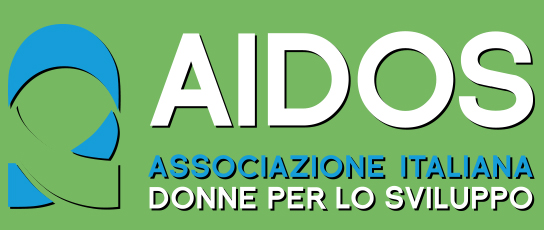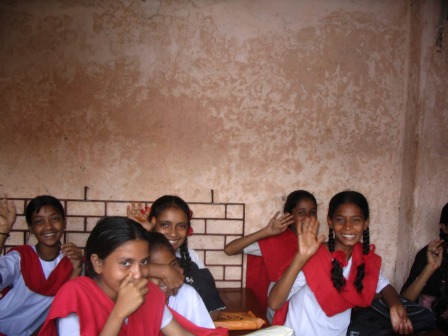1995 – in progress
Where
India – Kolkata
Partner
Tiljala SHED (Tiljala Society for Human & Education Development).
Background
There are 750 million illiterate people in the world: two thirds are women (UNESCO Institute for Statistics). In India, education is underfunded and receives only 3.3% of the 2020-21 Union budget. Despite the 2009 Law on the Right to Education which imposes compulsory schooling for children aged between 6 and 14, recent data show that: 60 million boys and girls are out of school, the highest number in the world; girls are twice as likely as boys to attend less than 4 years of school; nearly 40% of adolescent girls aged 15-18 are not attending any educational institution; 30% of girls from the poorest families have never set foot inside a classroom; female literacy rate is only 65% (Right to Education Forum and Center for Budget Policy, Girls education in India. Factsheet, 2019 ). Yet education is a key factor in preventing child marriages and teenage pregnancies, one of the causes of early school leaving. It has been estimated that 40% of child marriages occur in India under the age of 15 and every year at least 1.5 million girls get married under the age of 18. In 2019, 51% of young girls with no education and 47% of those with only primary education were married at the age of 18, while only 29% with secondary education and 4% with post-secondary education married before the age of 18 (UNICEF, 2019c). When a girl is educated, she is empowered: she can make informed decisions and attain a good standard of living for her family and children, She has more job opportunities with important benefits for society as a whole.
Following the COVID 19 pandemic, the condition in India is deteriorating and although in West Bengal, the federal state in which Kolkata is located, the situation is a little better than elsewhere, the pandemic has also spread due to the elections of the Assembly. All private and government hospitals are under pressure, beds and oxygen are lacking and often even the vaccine is not available. Hospitals are charging a lot of money that people in poverty can’t afford.. Education has also suffered a serious crisis with immediate and long-term effects on the achievement of the Sustainable Development Goals. An estimated 1.8 billion students have been affected by educational institution lockdowns.: about 320 million of them are in India . Disruption in education, isolation, poor access to health care and a reduction in services deemed “non-essential” have a greater impact on girls than boys and disproportionately affect the most marginalized. Even the online learning especially penalizes girls: in low and middle-income countries, women are 8% less likely than men to have a mobile phone and 20% less likely to use the Internet. Moreover, school and other learning spaces closures have led to increased childcare and chore responsibilities at home which are likely to disadvantage girls with detrimental effects on their learning ability (#HerEducationOurFuture. Keeping girls in the picture during and after the COVID-19 crisis. Fact sheet.UNESCO, 2021)
Goals
After an initial period of support to informal schools attended by the daughters of women who live by collecting garbage in landfills, in 1995 AIDOS and Tiljala SHED started the project “Fund for the education of young girls and teenage girls in Kolkata” with the goal of promoting their education and contrast the double discrimination they face since their birth. The Fund pays school fees, buys books and educational materials, organizes cultural visits, excursions and sport activities. Young girls who live on the sidewalks can receive hospitality in boarding schools and institutes. The Fund also gives an amount of money to the families of the girls who study, to replace the “loss of income” that would result from the work of the daughters. The operators of the project meet the girls weekly, both in groups and individually, following them in their studies and on their personal growth path.
Particular attention is given to problems related to child marriages, in order to prevent this widespread practice and guarantee the fundamental rights of girls.
In 2009, AIDOS and Tiljala SHED inaugurated the Gyan Azhar Library, a library/internet point that allows girls to study in a comfortable and protected space, with books, pedagogic games, audiovisual educational tools and the internet. Here they meet after school hours to read and study. It’s a place where they have new opportunities to get to know each other, to exchange ideas and experiences, to discover the world outside their restricted living environment. Two girls who have graduated thanks to the project “Fund for Education” are now involved in managing the library.
Results
In 2020, the spread of the COVID 19 pandemic and related containment measures by the Indian government resulted in the library being closed for a long time. Only some girls were able to take classes online. The project staff went to their homes to assess their progress in education and home condition. Many families are facing financial distress due to the disruption of economic activities often linked to informal jobs, small informal street businesses and houseworks. In this difficult situation, Tijlala SHED has started the Covid19 Emergency Relief Response and distributed food and supplies to families. Whenever possible, at the library, volunteers from other institutions / associations supported girls in their studies and created recreational activities, also providing sanitation and hygienic supplies to families. In the quarter January – March, 1.417 people frequented the library. After the closing, a slight recovery took place between July and September (42 people) and especially in the last quarter (460 people). In 2020, 75 girls enrolled in the library.
Duration of the project
It started in 1995 and it’s still ongoing.
Cost of the project
It’s €365 euro per year (1 euro per day) for each girl.
Who is financing the project
Support to the Fund for Education is provided by private individuals: families, groups of people/work colleagues, students who contribute with an annual fee for a minimum of two years.
The Gyan Ashar Library was created thanks to private funding and to the partnership that from 2008 to 2012 AIDOS established with laFeltrinelli, that has donated part of the profits from the sale of books on March 8th for the construction and maintenance of the library.
You can support the project too
AIDOS needs to count on a greater number of supporters to encourage the education of an increasing number of girls and to improve the functioning of the Gyan Ashar Library. You can also support the fundamental right to an education of Indian girls.

